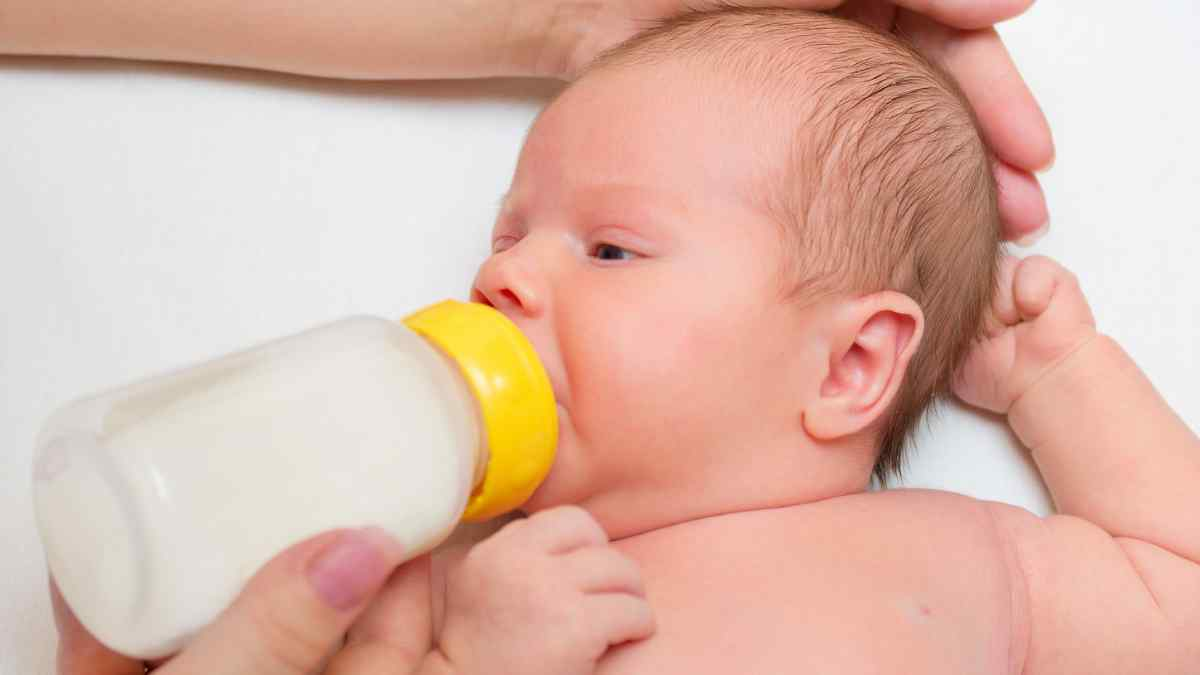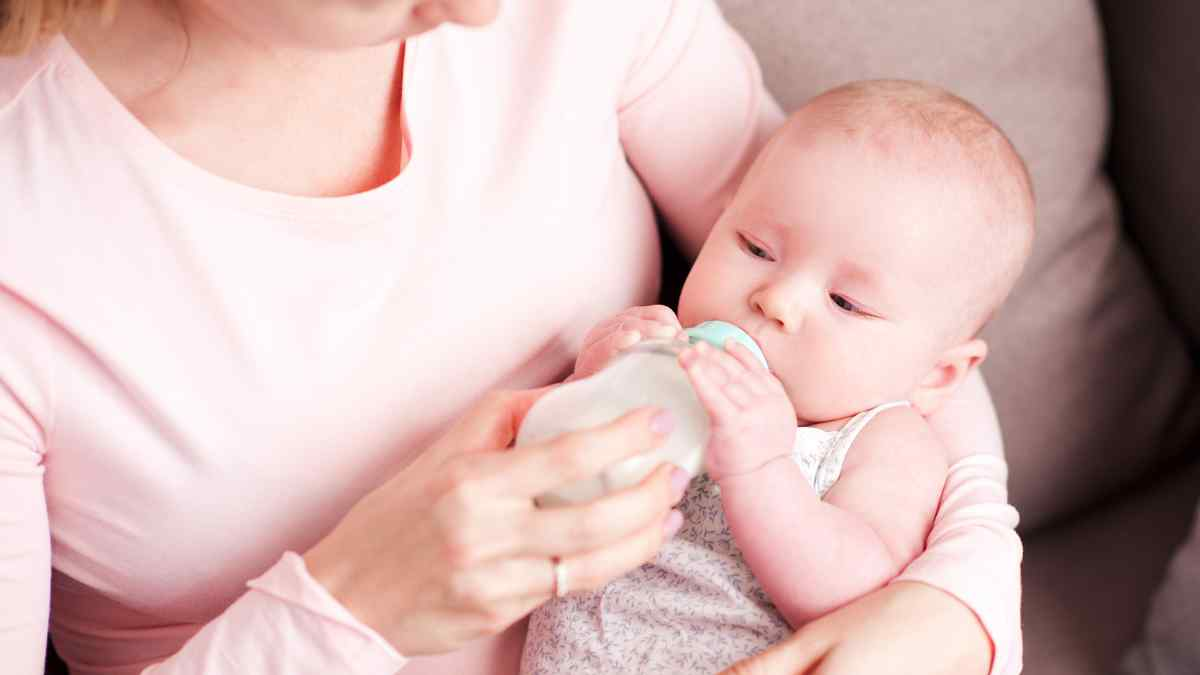Hydration, the provision of adequate water to the body, is paramount for sustaining life and maintaining optimal function of bodily systems. For infants whose bodies are rapidly growing and developing, maintaining proper hydration is crucial. Babies receive their hydration primarily through their intake of milk, be it breast milk or formula.
While breast milk is produced by the mother’s body to meet the infant’s needs for both nutrition and hydration optimally, formula-fed babies have different requirements, and their parents and caregivers need to be well-informed to cater to those needs effectively.
This piece will provide a comprehensive understanding of infant hydration, emphasizing how formula can meet hydration needs, special considerations, and practical tips to ensure your baby is well-hydrated, thriving, and happy. The objective is to empower parents with knowledge and guidelines to make informed decisions regarding their baby’s feeding and hydration practices, keeping the little one’s well-being at the forefront.

Understanding Infant Hydration
Maintaining proper hydration is crucial for everyone, especially for babies, whose bodily systems are developing rapidly. For infants, all the hydration they need primarily comes from breast milk or formula. Whether parents opt for breastfeeding or formula feeding, it’s paramount to understand the hydration needs to ensure the baby’s well-being.
Role of Water in Infant’s Body
Water plays a vital role in several bodily functions of an infant.
1. Digestive Health: Water is crucial for digesting the nutrients in breast milk, baby formula ready to feed formula, or powdered formula. It helps in breaking down the nutrients, allowing the body to absorb all the nutrients efficiently, which is crucial for growth and development.
2. Temperature Regulation: Maintaining body temperature is crucial for infants. Water aids in maintaining the body temperature, especially in hot weather, preventing the baby from overheating.
3. Waste Elimination: Adequate water is essential for the kidneys to eliminate waste through urine, preventing the buildup of toxins in the body.

Signs of Proper Hydration
Proper hydration is manifested through several signs, indicating that the baby is receiving enough fluids through breast milk or prepared formula.
1. Regular Urination: A well-hydrated baby will have regular wet diapers, usually around six or more a day.
2. Moist Lips and Mouth: The lips and mouth of the baby should be moist, indicating adequate fluid intake.
3. Normal Skin Tone and Elasticity: The baby’s skin should be soft, with a normal color and elasticity, showing that the child is well-hydrated.
Symptoms of Dehydration
Recognizing the signs of dehydration early is crucial to prevent any weakened immune system and related health problems.
1. Infrequent Urination: If a baby is producing less urine, it might be a sign of inadequate fluid intake.
2. Dark Yellow Urine: Dark yellow urine is usually a sign that the baby is not getting enough fluids.
3. Dry Mouth and Lips: A dry mouth and lips are indicative of dehydration.
4. Lethargy or Irritability: A dehydrated baby may appear more lethargic or irritable than usual.

When mixing formula, it’s important to use a safe water source, whether it’s boiled and cooled tap water, low fluoride bottled water, or specialized baby water. The American Academy of Pediatrics recommends that if you are using tap water to mix formula, it’s advisable to use fluoridated tap water, as it helps prevent tooth decay. However, using too much fluoridated water can lead to faint white lines or streaks on the teeth (fluorosis), so it’s wise to alternate between fluoridated tap water and low fluoride bottled water. For accurate preparation, parents should follow the instructions on the formula packaging and consult with their local health department or pediatrician on water safety tips and how much water is suitable.
Giving your baby too much water, adding extra water to the bottle or using improperly diluted formula, can lead to water intoxication, which is harmful as it disturbs electrolyte balance, leading to dangerous complications. It is also crucial not to give your baby extra water until they are about six months of age, as all the hydration and nutrients they need come from breast milk or formula.
When preparing infant formula, be it concentrated liquid or powder formula, always ensure a clean bottle is used, and the prepared formula should be at room temperature or slightly warm but never hot. Some parents might prefer to flavor water or use ready-to-feed formulas, especially when traveling or going outdoors. However, it is essential to ensure that the baby drinks enough formula and stays hydrated.

Conclusion
Ensuring proper hydration is integral to the health and well-being of formula-fed babies. Navigating the myriad needs of infants can be a daunting task, but with accurate knowledge and attentiveness, parents and caregivers can proficiently meet the hydration needs of their little ones. This article aims to illuminate the essential aspects of hydration for formula-fed babies, providing insights into the role of water in an infant’s body, how to discern the signs of adequate hydration, and how to recognize and address dehydration symptoms.
Parents and caregivers must remain vigilant for signs of dehydration—such as infrequent urination, dark yellow urine, and dry mouth and lips—and address any concerns immediately, consulting healthcare providers as needed. It’s equally important to recognize signs of proper hydration, including regular urination, moist lips and mouth, and normal skin tone and elasticity.
Raising a well-hydrated, healthy, and happy baby involves constant learning, love, and care. Armed with the right information and a proactive approach, parents and caregivers can confidently navigate the waters of infant hydration, ensuring their babies thrive and develop optimally. By embracing informed choices and maintaining vigilant observation, we can safeguard our children’s health and foster a nourishing environment conducive to their growth and happiness.
Did you find this article helpful? Please comment below. If you have any questions, feel free to ask.



